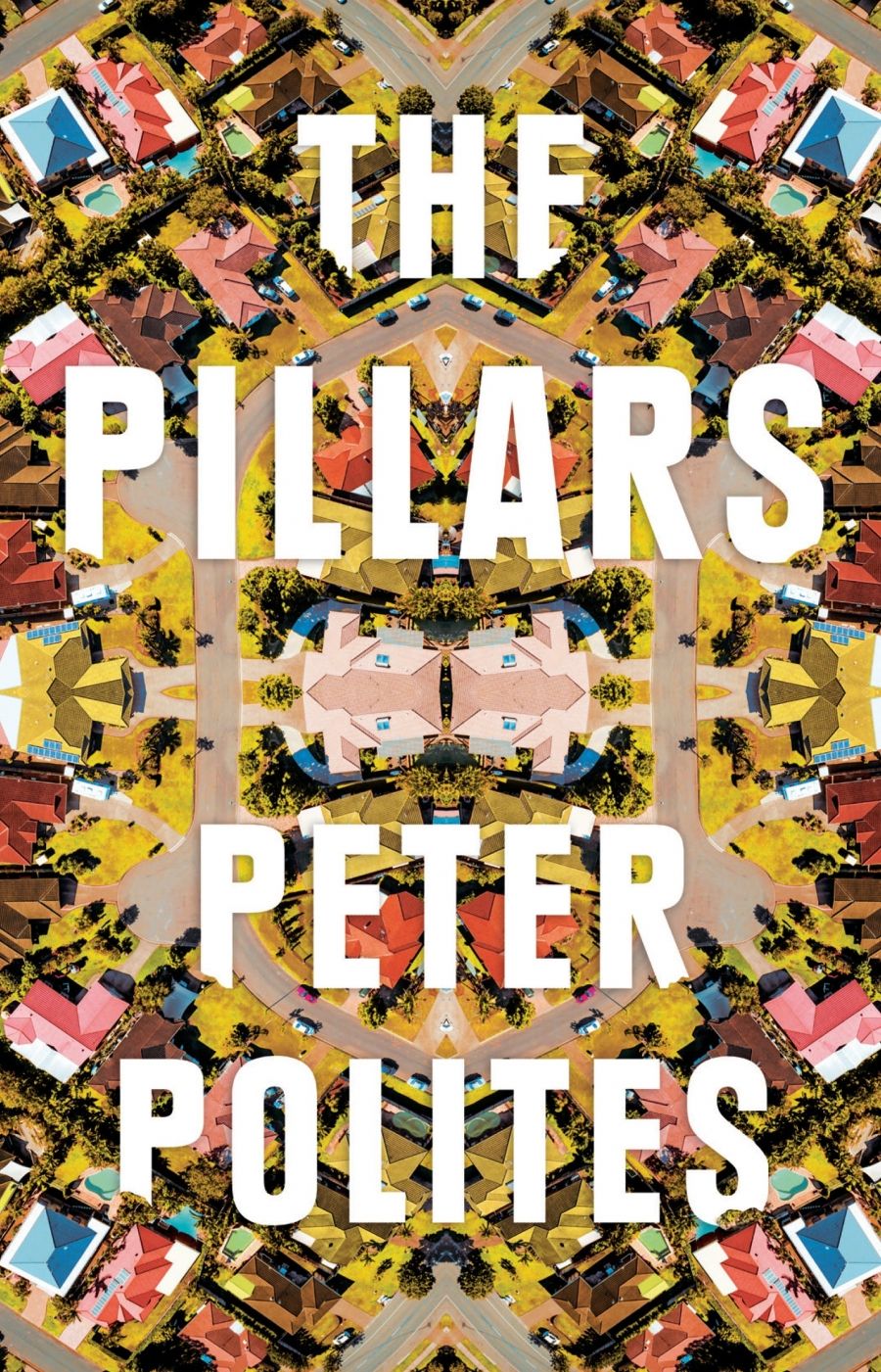
- Free Article: No
- Contents Category: Fiction
- Review Article: Yes
- Online Only: No
- Custom Highlight Text:
The 2019 federal election result confirmed that housing prices, upward mobility, tax cuts, and limited immigration are powerful motivators for Australian voters. Peter Polites’s second novel, The Pillars, with its themes of social and material advancement in Sydney’s western suburbs, captures this spirit of the time perfectly ...
- Grid Image (300px * 250px):

- Alt Tag (Grid Image): Crusader Hillis reviews 'The Pillars' by Peter Polites
- Book 1 Title: The Pillars
- Book 1 Biblio: Hachette, $32.99 pb, 260 pp, 9780733640186
Pano lives with Kane – well-built, attractive, decidedly Anglo. Kane’s aspiration to be an A-list gay means that he fills his house with designer replicas while repeatedly reminding Pano that he is his landlord, not his housemate. Sex happens regularly in the house accompanied by online hook-ups and the occasional meth-fuelled sex party. Sometimes Kane has sex with Pano, prompting the latter to fantasise a future together.
The novel offers a fresh lens on gay life, placing it irrevocably within the aspirational class, its members ready to turn their back on an inconvenient background without a flutter of regret. Here, being gay means social mobility and opportunities to move up the ladder because of the outward markers of fashion, taste, looks, and sex.
The novel opens with the news that a mosque is being built in the suburb. Kane, worried about its effect on house prices, forms an unlikely alliance to oppose its construction. Pano, despite misgivings, agrees to help, believing that it will bind him to Kane. The campaign takes a bizarre turn when Pano agrees to masquerade as a gay Albanian Muslim opponent of the mosque for a queer media campaign focused on homophobia within Muslim communities.
 Peter Polites (photograph via Hachette Australia)
Peter Polites (photograph via Hachette Australia)
As in his first novel, Down the Hume, a mother is a major character; the mothers in each novel share a history of trauma and mental illness. Pano clearly has a conscience – much of his time is spent on working out his single mother’s needs – but his desire to abandon his roots is equally important. His understanding of the place of women in Greek–Australian culture is nuanced and perfectly pitched, with acute observations on the place of Greek mothers in myth and as stereotypes.
Back in Bankstown, Pano meets up with Basil, his athletic high-school crush, who enlists him to write his biography. Basil has it all: he owns properties; he’s fit, tanned, and muscular; he keeps his elderly father in comfort. His girlfriend, Kamilla, not only manages his business but is an Anglo who has remodelled herself to look like a classy ‘wog girl’ – dyed long hair, make-up, nails, and clothes to match the local look. When Pano bumps into an ex-university friend in a Newtown café, he tells him that his vanity piece on Basil is ‘a character interrogation of aspirational diasporic communities’. It is a phrase that perfectly describes the intention of The Pillars.
Pillars are a recurring motif in the novel. There are the pillars of belief that sustain the characters; the pillars of the southern European immigrants who replicated their lives of grass and trees back home with pillars of concrete and statues of lions across western Sydney. Personally, Pano is conscious of a pillar inside him, the spine that allows him to stand up straight and keep moving.
The chapters are short and self-contained, and the narrative moves backward and forward in time, building to a discursive final section. The sentences are short, sharp, and crisp. There is never a misstep in Polites’s confident writing. His descriptions of physicality are exquisite, whether he is talking about the impact of a spied-upon and isolated body part, the grooming habits of Bankstown men, or the endless preoccupation with hair removal among the southern European communities he sprang from. A highlight of this rich and compelling novel is that Polites takes what is seen as marginal and puts it at the centre. So-called Australian values are dissected and dismissed as unformed culturally or imaginatively. Nor is Pano cast as a victim. His lucid insight and big-picture view of the world offer him access to social mobility and a way forward.


Comments powered by CComment